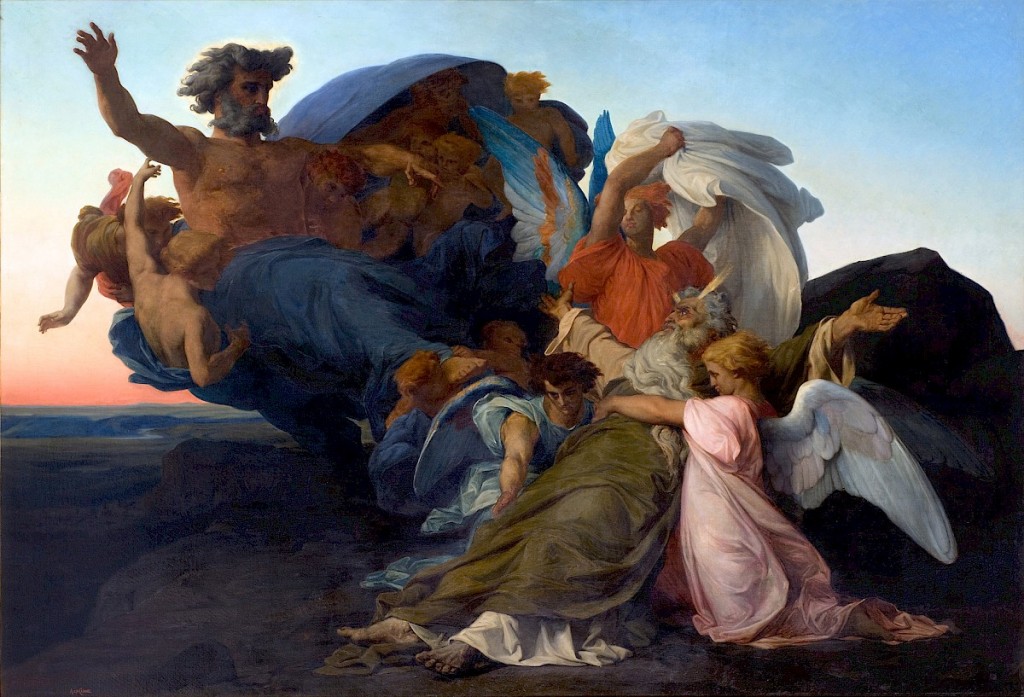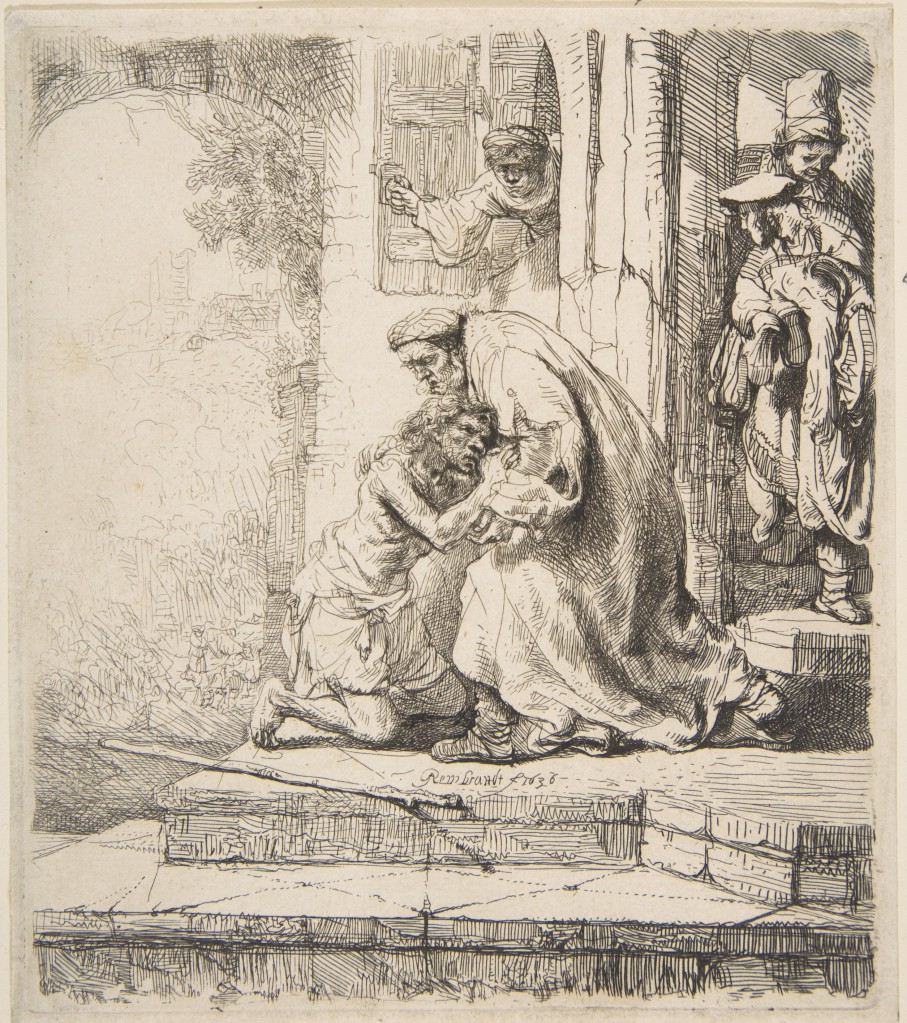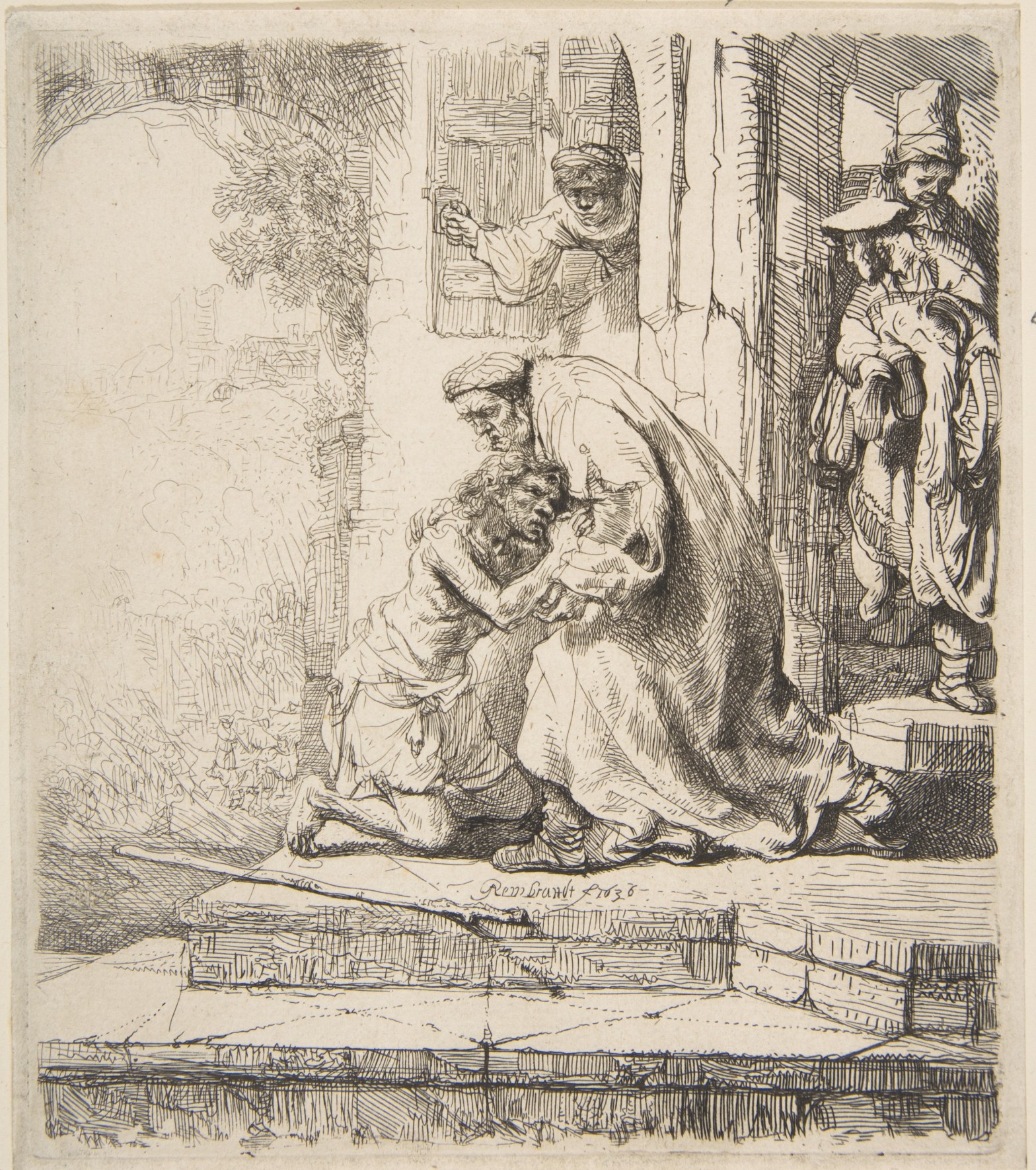In the Old Testament, when a person died, it is said that he “went to be with his fathers.” In Genesis 15:15, God told Abram,
As for you, you shall go to your fathers in peace;
you will be buried at a good old age.
Joseph too, when close to death, said,
Please do not bury me in Egypt, but when I lie down with my fathers,
you shall carry me out of Egypt and bury me in their burial place.
Genesis 47:30
We find the same language about the death of Moses (Deut 31:16), the death of Joshua and his entire generation (Judges 2:10). And at David’s death, too, the text reads,
Then David slept with his fathers and was buried in the city of David.
1 Kings 2:10
And again, the phrase appears at the death of Solomon, Jeroboam, Rehoboam, Abijam, Asa, Baasha, Omri and more. It’s an intriguing little phrase. Its repetition stands out like a beacon. It calls to us.

Most commentaries I’ve read say only that this phrase is a euphemism for death, a figure for heaven, the afterlife. Some suggest that the phrase carries a commitment to honour the seed of David. But there’s always more than the plainest meaning, friends. There’s always more.
A closer look reveals that this phrase doesn’t just appear at the death of people after God’s own heart. The Divine Author also uses it to characterize the death of people who hated God, like Ahab and Jeroboam. And He uses it only when men die, not women. Ah, now we’re onto something.
I press on and find a hint of its deeper meaning at the death of David in 1 Kings 2, when David charges Solomon to be strong, to show himself a man. The text tells us,
As David’s time to die drew near, he charged Solomon his son, saying,
“I am going the way of all the earth.“
We’ve got our next milestone. If the trail runs cold, we can store what we’ve found until later. But my mind’s eye has caught sight of two previously sighted landmarks. Remember the way? First we go back, and then we go forward. We begin with God’s warning to Adam and Eve about the Tree of the Knowledge of Good and Evil (Gen. 2:17).
From the tree of the knowledge of good and evil you shall not eat,
for in the day that you eat from it, you will surely die.
Well, we know what happened after that, didn’t we? Paul reminds us, in Romans 5:12-14.
12 Therefore, just as sin came into the world through one man, and death through sin, and so death spread to all men because all sinned—
13 for sin indeed was in the world before the law was given, but sin is not counted where there is no law.
14 Yet death reigned from Adam to Moses, even over those whose sinning was not like the transgression of Adam, who was a type of the one who was to come.
Perhaps you’re starting to see why changing pronouns and other gendered references in the Bible is tricky business indeed. The layers of meaning that the Divine Author embeds in every choice in the text are highly significant. On the surface, Paul’s phrase “all men” is inclusive. In Adam, death spread to all people.
But there is another meaning here, which God guides us to through that little phrase we began with. There, we find God’s subtle reminder to us that there is no man who can conquer death but Jesus Christ. Every man but Jesus returns to his earthly father and to Adam, that father before them. Only Jesus could enter the world without the aid of any human man, without the DNA of any male on earth. Jesus Christ, born of a woman by the power of the Holy Spirit.
Through men was death. And through women was life. Indeed, the world was saved through childbearing.
But lest we think there’s no hope for men (or any of us, that is), there is one other use of the phrase that we haven’t yet talked about. We find it in the words of Jesus Christ Himself, who tells us of another kind of family reunion, when the wayward son goes not to his earthly father but his Heavenly One.
So he got up and went to his father.
But while he was still a long way off,
his father saw him and was filled with compassion for him;
he ran to his son, threw his arms around him and kissed him.
Luke 15:20



3 Comments